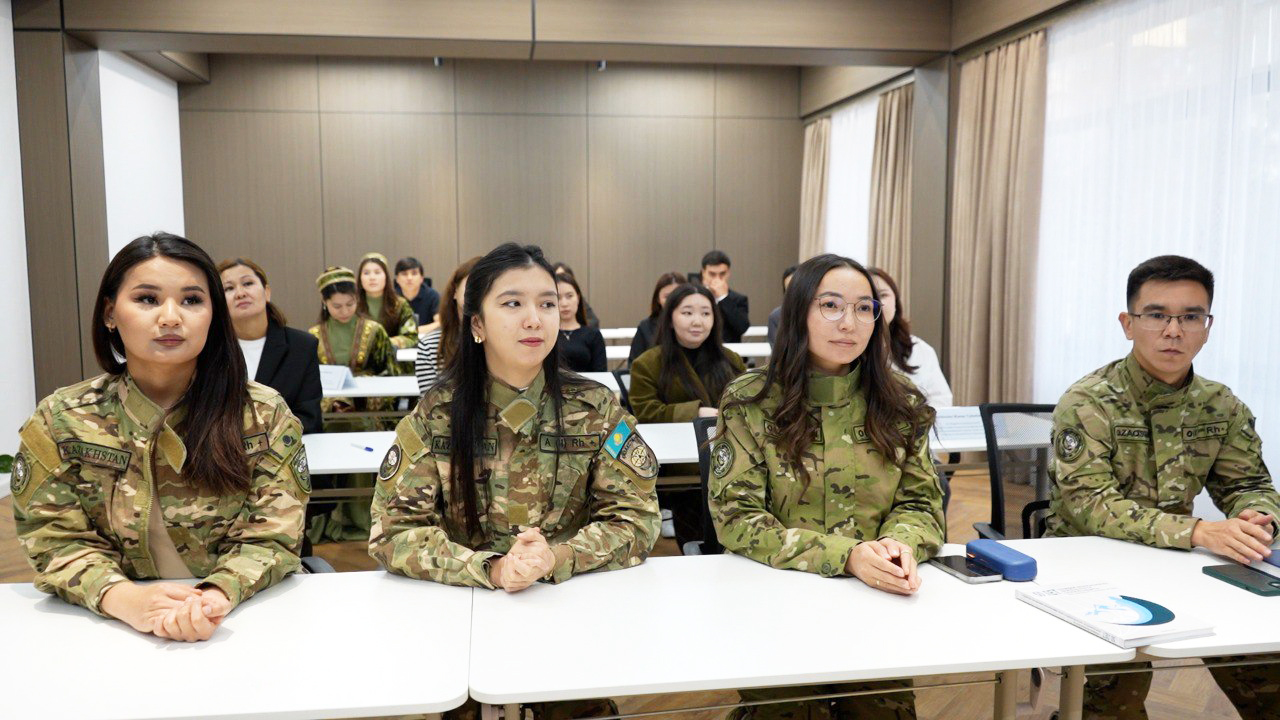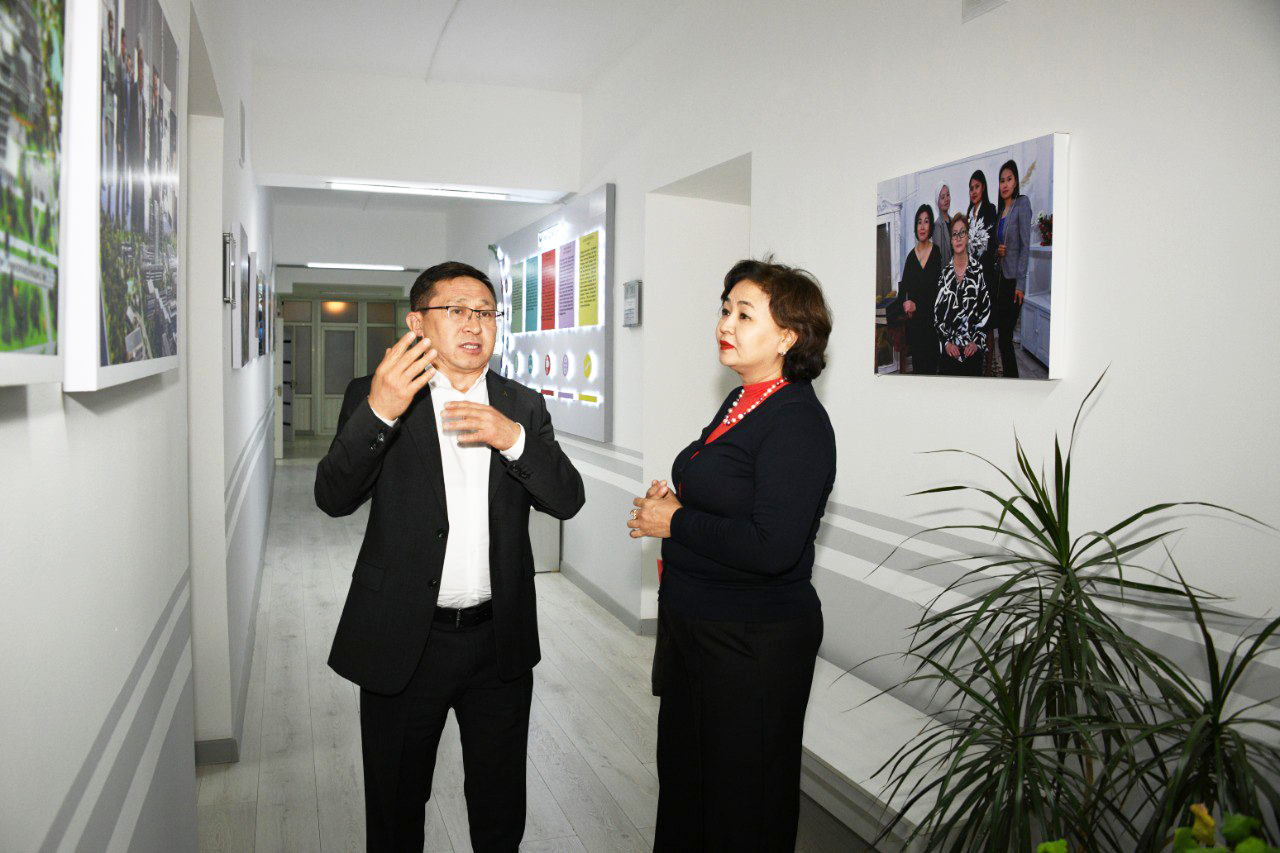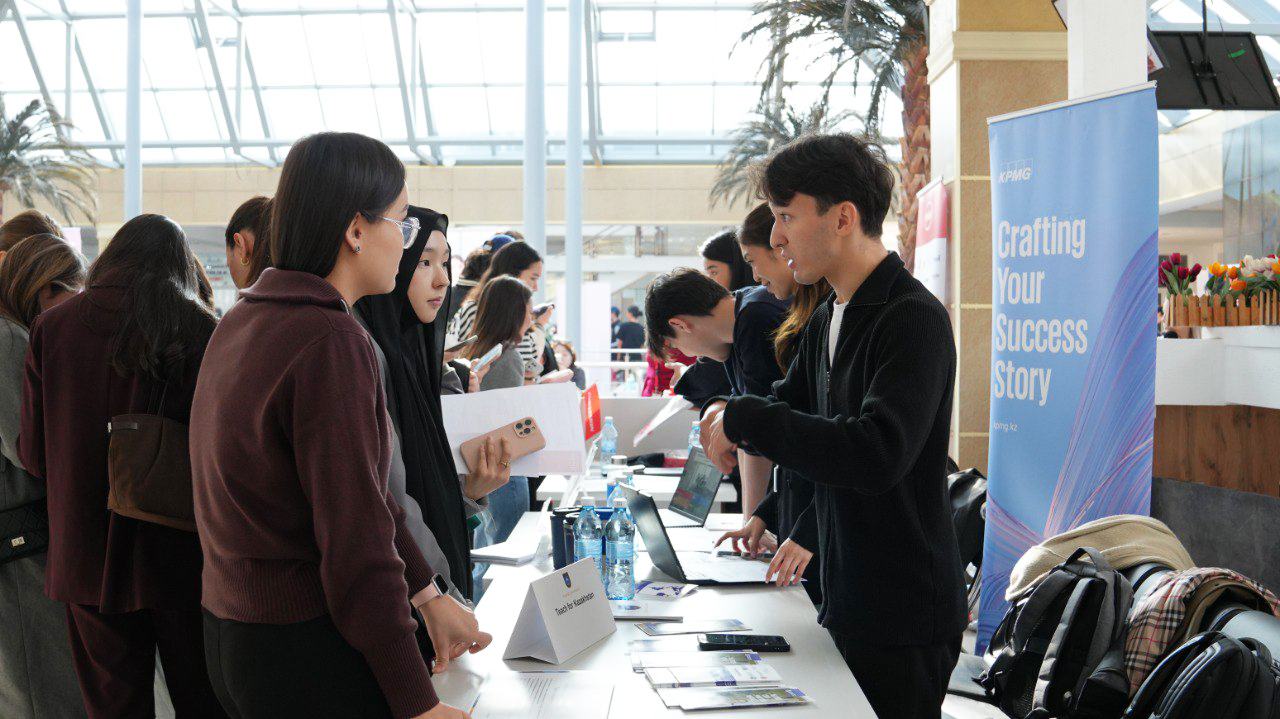The word at the crossroads of epochs
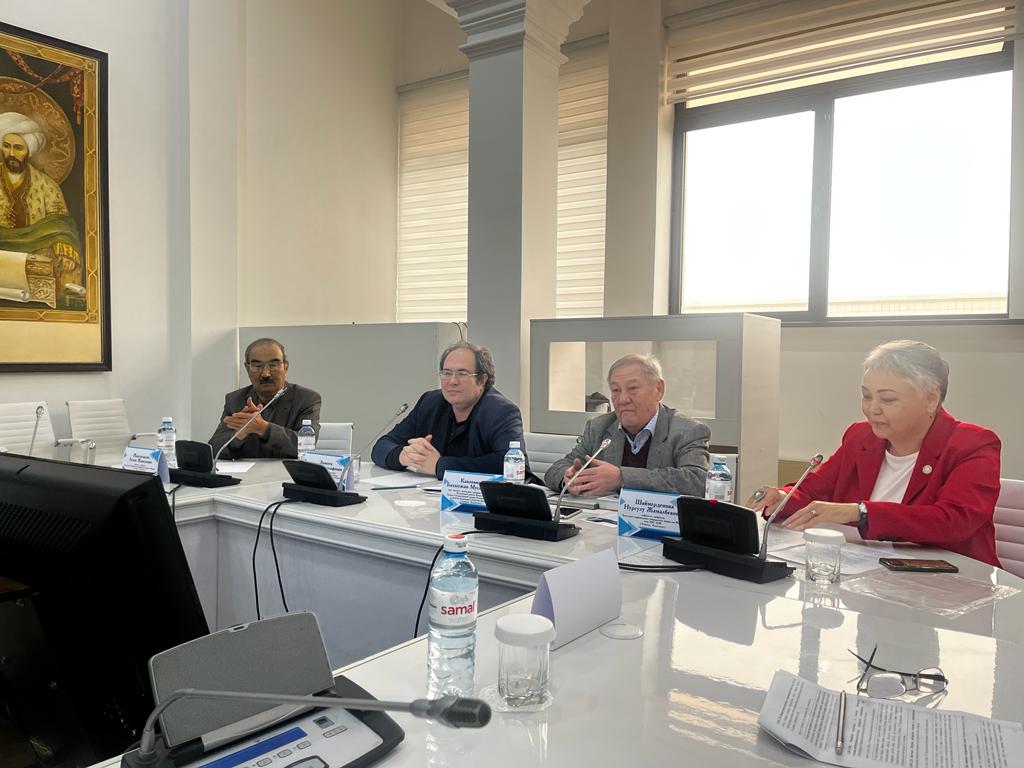
On November 21, there was the leadership lecture on the topic: "The fate of a writer in the post-Soviet space" in the Library of the Al-Farabi Kazakh National University. The meeting was organized by the Institute of Translation (Moscow, Russia) and the Department of Russian Philology and World Literature of Al-Farabi Kazakh National University.
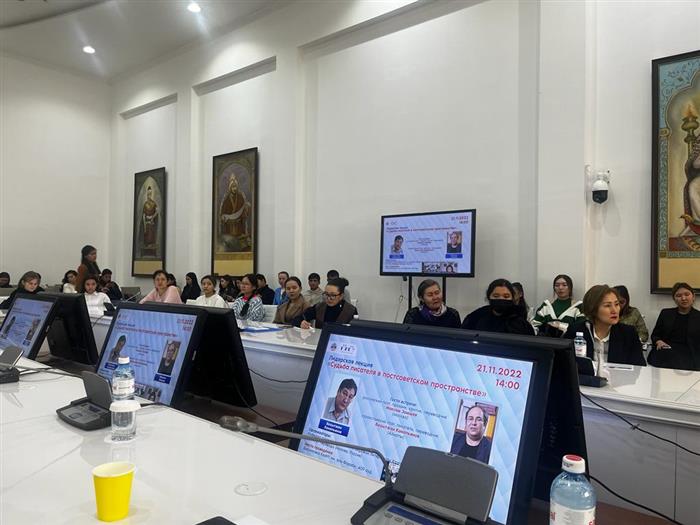
The lecturers of the open creative meeting were Russian poet, novelist, critic Maxim Zamshev and Kazakh poet, novelist and translator, Bakhytzhan Kanapyanov. Bakhytzhan Kanapyanov and Maxim Zamshev saw the collapse of the Soviet Union. At that time, they both were famous writers. The revolution of the 90s completely changed not only the model of people’s destiny but it also influenced the career path of many writers. The guests shared their memories about that time. They talked about the aesthetics of post-Soviet prose, the synthetism of modern literature and about the writers of Russia and Kazakhstan.
The meeting was hosted by Doctor of Philology, writer and translator, Aslan Zhaksylykov and Doctor of Philology, Professor of the Department of Russian Philology and World Literature of Al–Farabi Kazakh National University, Nursultan Shaimerdenova.
the Executive Director of the Institute of Translation Evgeny Reznichenko and Kazakh poet, journalist and editor Ulykbek Esdaulet were also invited to this important event. Evgeny Reznichenko told about the activities and the projects of the Institute in his welcoming speech. Ulykbek Esdaulet also shared his creative experience at the crossroads of epochs.
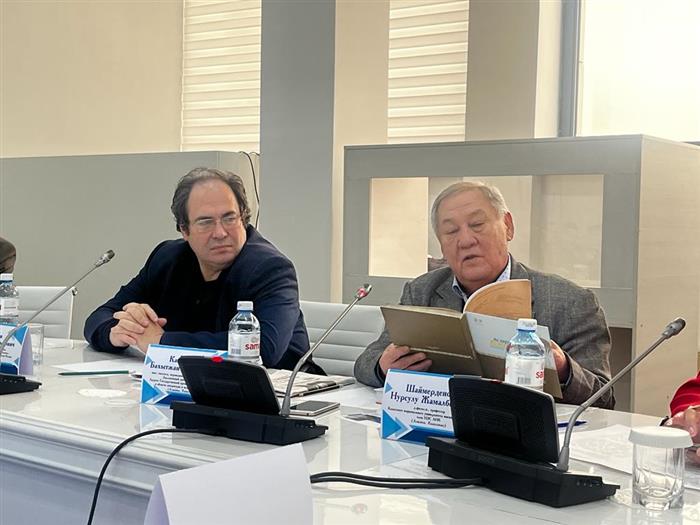
The writers, the teachers of the literary departments of universities, the students, the master’s degree students and the PhD students of Al-Farabi Kazakh National University took part in the given event. The event was held in a hybrid format, so the audience from other cities also had the opportunity to participate. The students and the teachers of the Kazakhstan branch of Lomonosov Moscow State University, E. Buketov Karaganda State University and from other universities showed a huge interest in the meeting.
During the meeting, the speakers touched upon such topics as the difference in the writer’s needs in Soviet and post-Soviet periods, the convergence of people and the personality of the writer together in the changing social and political conditions.
